Is Seafood High in Potassium? A Comprehensive Answer
Is Seafood High in Potassium? A Comprehensive Answer
Seafood is a popular and healthy food choice for many people. It is a great source of lean protein, vitamins, and minerals. One of the minerals found in seafood is potassium. Potassium is an essential nutrient that plays a vital role in maintaining good health.

You may be wondering, "Is seafood high in potassium?" The answer is yes. Seafood is a good source of potassium, with some varieties containing more than others. Potassium is important for maintaining healthy blood pressure, heart function, and muscle function. It is also essential for the proper functioning of the nervous system. In this article, we will explore the role of potassium in seafood and its health benefits.
Key Takeaways
- Seafood is a good source of potassium.
- Potassium is essential for maintaining healthy blood pressure, heart function, and muscle function.
- Eating seafood can provide many health benefits, including reducing the risk of heart disease and stroke.
Overview of Potassium in Seafood
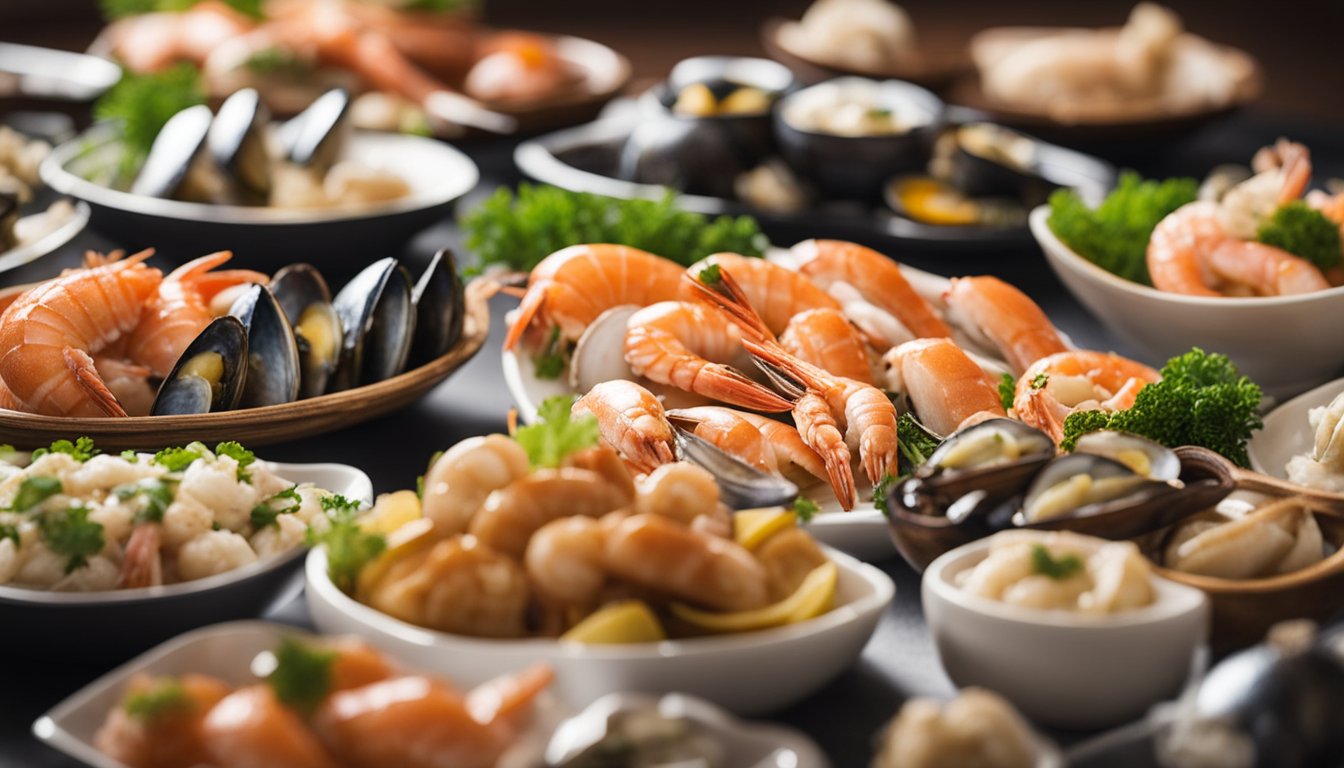
If you're looking for a delicious way to increase your potassium intake, seafood is a great option. Potassium is an essential mineral that helps regulate your body's fluid balance, muscle contractions, and nerve signals. It also helps lower blood pressure and reduce the risk of stroke.
Seafood is a rich source of potassium, with many varieties containing more than 10% of your daily recommended intake in just one serving. For example, a 3-ounce serving of Atlantic mackerel contains 350 milligrams of potassium, while the same serving size of yellowfin tuna contains 280 milligrams. Other potassium-rich seafood options include snapper, cod, pompano, salmon, halibut, and shrimp.
When choosing seafood for its potassium content, it's important to pay attention to the cooking method. Boiling, steaming, and baking are all great options that preserve the potassium content of the fish. However, frying can reduce the potassium content by up to 50%.
It's also worth noting that some types of seafood contain more potassium than others. For example, small fish like anchovies and sardines are packed with potassium, while larger fish like swordfish and shark contain lower levels.
In summary, seafood is an excellent source of potassium that offers a range of health benefits. By incorporating potassium-rich seafood into your diet, you can improve your overall health and reduce the risk of chronic diseases.
High-Potassium Seafood Varieties
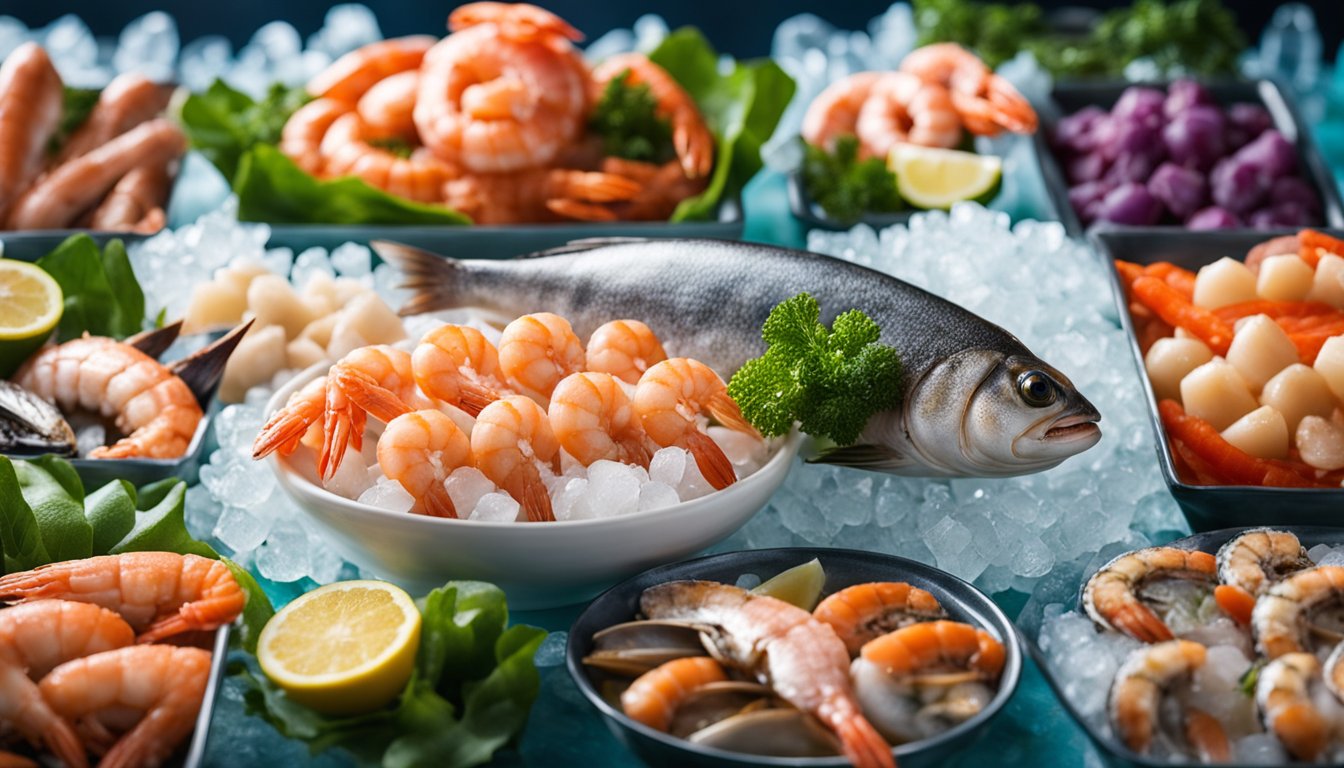
If you're looking for high-potassium seafood varieties, you'll be pleased to know that there are plenty of options to choose from. Here are some of the best:
Shellfish
Shellfish are a great source of potassium, and they're also low in fat and calories. Some of the best shellfish options include:
- Clams: 534mg of potassium per 100g serving.
- Mussels: 628mg of potassium per 100g serving.
- Oysters: 214mg of potassium per 100g serving.
- Shrimp: 223mg of potassium per 100g serving.
Fish
Fish is another excellent source of potassium, and it's also high in protein and omega-3 fatty acids. Here are some of the best fish options:
- Salmon: 628mg of potassium per 100g serving.
- Tuna: 484mg of potassium per 100g serving.
- Halibut: 490mg of potassium per 100g serving.
- Snapper: 484mg of potassium per 100g serving.
It's important to note that the potassium content of fish can vary depending on the species and how it's prepared. For example, canned fish can be high in sodium, which can counteract the benefits of the potassium. Fresh fish is generally lower in sodium, so it's a better option if you're looking to increase your potassium intake.
Overall, seafood can be an excellent source of potassium, and it's also a delicious and healthy addition to your diet. Whether you prefer shellfish or fish, there are plenty of options to choose from that can help you meet your daily potassium needs.
Health Benefits of Potassium from Seafood
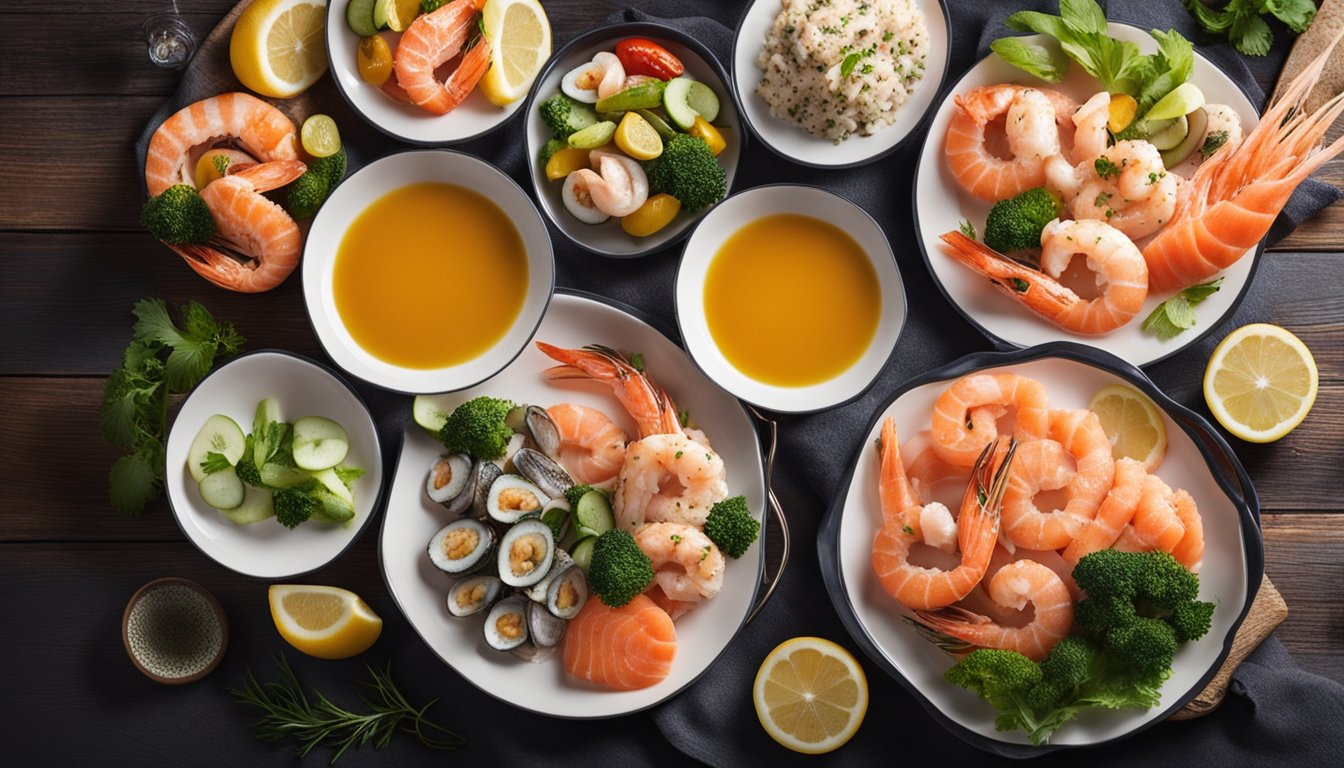
Seafood is a great source of potassium, an essential mineral that plays a crucial role in maintaining your body's fluid balance, muscle function and heart health. Potassium is also important for maintaining healthy blood pressure levels, and a diet rich in potassium can help reduce the risk of stroke and heart disease.
Seafood such as salmon, tuna, halibut, mackerel, snapper, and clams are all excellent sources of potassium. For example, one cup of cooked clams contains approximately 534mg of potassium, while a 4-ounce fillet of salmon, tuna, halibut, mackerel, or snapper contains over 400mg of potassium [1][2][3].
Potassium from seafood is also easily absorbed by the body, making it an effective way to increase your potassium intake. In fact, studies have shown that a diet high in potassium can help reduce the risk of osteoporosis, kidney stones, and certain types of cancer [4].
In addition to potassium, seafood is also rich in other essential nutrients such as omega-3 fatty acids, vitamin D, and protein. Omega-3 fatty acids, in particular, have been shown to have numerous health benefits, including reducing inflammation, improving brain function, and reducing the risk of heart disease [5].
Including seafood in your diet is a great way to increase your potassium intake and enjoy the many health benefits that come with it. Whether you prefer your seafood steamed, grilled, or baked, there are many delicious and healthy ways to incorporate seafood into your diet.
[1] https://seaco-online.com/blogs/seafood/seafood-high-in-potassium-in-singapore-a-nutritious-delight [2] https://baldwins-seafood.com/is-seafood-high-in-potassium/ [3] https://www.verywellhealth.com/foods-high-in-potassium-8414111 [4] https://www.ncbi.nlm.nih.gov/pmc/articles/PMC3941824/ [5] https://www.healthline.com/nutrition/17-health-benefits-of-omega-3
Considerations and Recommendations
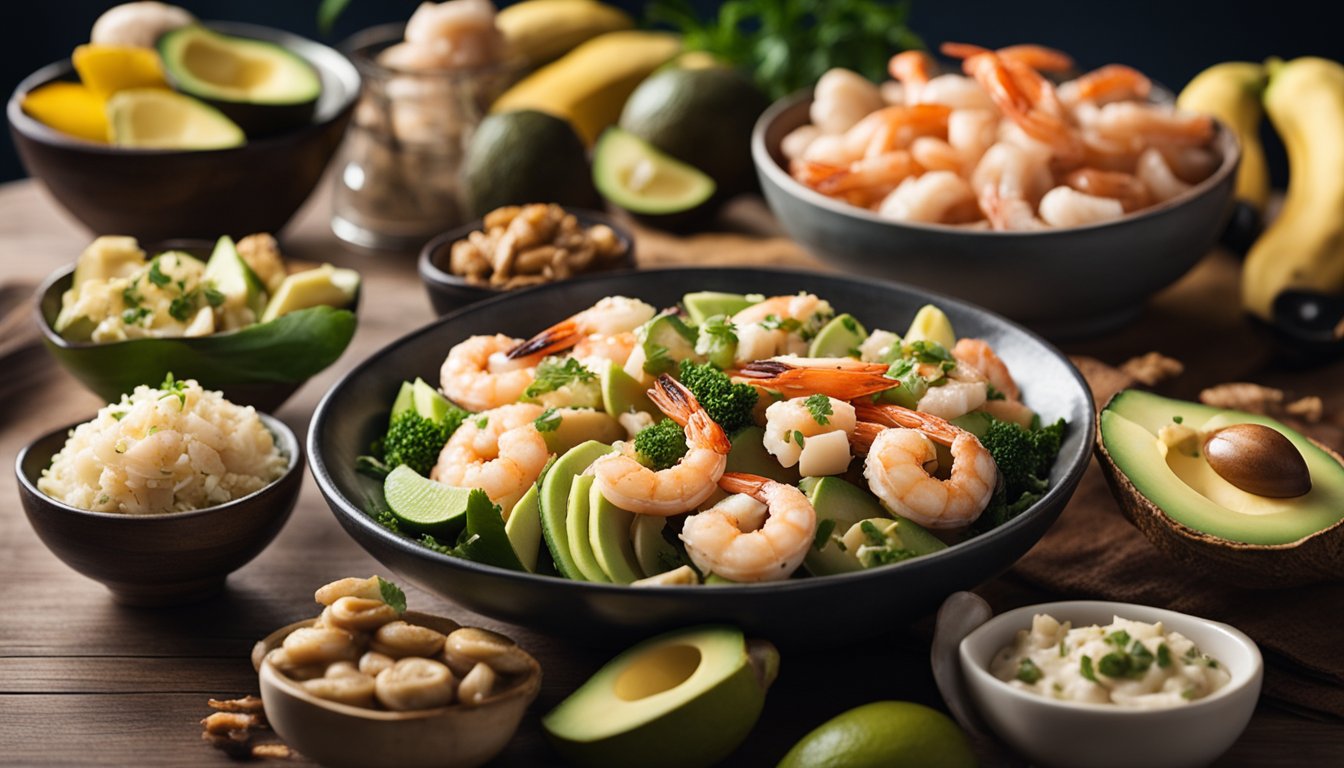
Seafood is a great source of potassium, which is an essential mineral that helps regulate fluid balance, muscle contractions, and nerve signals in your body. However, it's important to note that not all seafood is high in potassium. Therefore, it's important to choose the right types of seafood to get the most potassium benefits.
When selecting seafood, it's essential to consider the freshness and quality of the product. Fresh seafood is the best choice as it is packed with nutrients, including potassium. You can buy fresh seafood from local markets or fishmongers. Make sure to check the label or ask the seller about the source of the seafood to ensure that it is fresh and of good quality.
Another consideration when choosing seafood is the cooking method. Some cooking methods, such as frying, can reduce the potassium content in seafood. Therefore, it's recommended to choose healthier cooking methods such as grilling, baking, or steaming to retain the maximum amount of potassium.
To help you choose the right seafood, we have compiled a list of seafood high in potassium. Salmon, tuna, halibut, cod, and clams are some of the best sources of potassium. You can also try other seafood such as oysters, mackerel, and snapper, which are also high in potassium. Check out our search results for more information.
In summary, seafood is an excellent source of potassium, but it's essential to choose the right types of seafood, consider the freshness and quality, and use healthy cooking methods to get the most potassium benefits.
Frequently Asked Questions
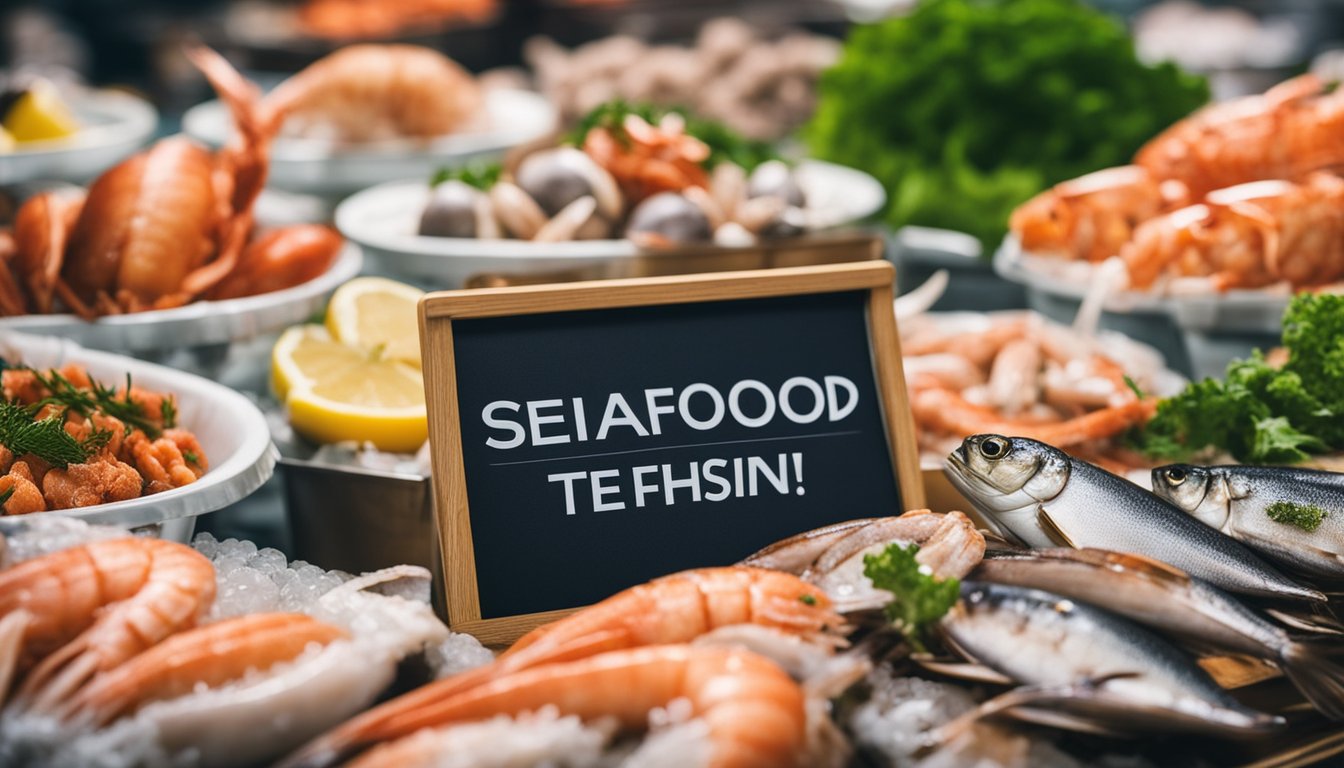
How do prawns fare on the potassium scale?
If you're a fan of prawns and wondering how they fare on the potassium scale, you'll be glad to know that they are a decent source of potassium. According to Baldwins Seafood, prawns contain around 200mg of potassium per 100g serving. While they may not be the highest source of potassium, they are still a healthy and delicious seafood option.
What are the top seafood choices for potassium lovers?
If you're looking to increase your potassium intake, seafood is a great option. Some of the top seafood choices for potassium lovers include:
-
Clams: One cup of cooked clams contains approximately 534mg of potassium. They are also low in fat and calories, making them a healthy seafood option.
-
Salmon: This oily fish is not only a great source of omega-3 fatty acids but also contains around 400mg of potassium per 100g serving.
-
Halibut: This lean fish is a good source of protein and contains around 490mg of potassium per 100g serving.
-
Snapper: This white fish is a great source of potassium, with around 400mg per 100g serving.
Which drinks should I consider for a potassium boost?
While seafood is a great source of potassium, there are also some drinks that can help boost your potassium levels. Some of the top drinks to consider include:
-
Coconut water: This refreshing drink is not only hydrating but also contains around 600mg of potassium per 240ml serving.
-
Orange juice: This popular breakfast drink contains around 500mg of potassium per 240ml serving.
-
Tomato juice: This savoury drink is a great source of potassium, with around 550mg per 240ml serving.
By incorporating these seafood options and drinks into your diet, you can easily increase your potassium intake and enjoy a healthier lifestyle.


